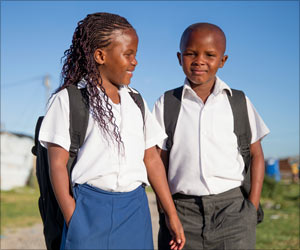In some parts of the world, a television in the classroom might be a diversion for students.
But in remote areas of the immense Amazon jungle in Brazil, it's an educational lifeline, a key tool for learning that helps break the tyranny of distance.Some 2,500 primary school pupils in rural parts of the vast northern Acre state depend on video courses shown on small televisions in viewing rooms to keep up with their urban counterparts who have greater access to teachers, cultural excursions and libraries.
"Tele-learning" started five years ago, when authorities decided to put into practice ideas first formulated by Brazilian educator, Paulo Freire, who died in 1997, to counter an obvious shortfall in basic education.
Acre's governor, Jorge Vianna, described how a visit to a remote school in the forest rammed home the need to improve teaching methods.
"I remember visiting a school and meeting a girl of 19 years who was doing third grade for the fifth time. She told me she had already passed third grade, but as there were no more options or grades to go on to, she had to keep going back to the same level," he told AFP.
An agreement with the Roberto Marinho Foundation, named after the founder of Brazil's biggest private media group O Globo, opened the way for the introduction of video courses based on Sunday morning educational television shows.
Advertisement
If the hard slog of travelling hours or days over pitted dirt roads and along jungle paths weighs on her 60-plus years, it doesn't show. She may turn up at the schools covered in dust or mud, but also with her lipstick firmly applied.
Advertisement
"In five years, this system has allowed nearly 11,000 students to graduate in Acre," she said with pride.
According to Brazil's education ministry, Acre state came last in a 1999 ranking of all the country's 27 states in terms of primary school results.
Since the program has been implemented, it has leapt to 11th place, 2005 figures show. "We want Acre to be in the top 10 this year," Vianna said.
The success of the scheme is all the more striking when put in the context of the huge disadvantages suffered by pupils in the sparsely populated state.
For instance, to get to the Sao Pedro school in the Bomlevar catchment, a reserve where latex is extracted from plants, it is a bone-jarring three-hour journey by truck along a rutted dirt road from the nearest town of Xapuri.
Then comes an hour-long trek through dense Amazonian rainforest.
The school's teacher, Lisandro Augusto, is a former trucker who switched professions when he saw the educational difficulties faced by his son.
He receives a dozen students, many of whom sleep at the school during the week because their family homes are too far for a daily commute.
Such distances also preclude laying electrical cables to power the classroom television set, so a solar panel is used.
On this day, the panel was not working properly, and the screen got only a few minutes of play.
"But for the kids, that's enough, because the discussion that comes afterwards is the what interests them most," Augusto said.
The students have well-defined tasks at the school. While some clean the building in the morning, others prepare the papers for the day's exercises or revision texts.
Half-way between the school and Xapuri is another school, in Tupa county. There, teacher Antonia Lima also stays during the week to watch over her boarding students, on whose families she depends.
"The parents of some of the students send me food, and I return to Xapuri only on weekends," she said.
Among the students in her school's sole classroom sat an adolescent with long hair, Marcia Valeria Leite, trying to divide her attention between the lesson and her one-year-old baby.
"I have to bring him, because there's no-one to leave him with at home," she said. "He likes playing here at school."
Outside, Maria Neucilene Lopes, another teacher who is also a regional school coordinator, said the relative isolation she faces was in no way intimidating.
"I arrived at this school in 2006. I came from Xapuri on a motorbike, and when I arrived I just stopped and cried. But today, I wouldn't change these schools for anything," she said.
Source-AFP
SRM/C





